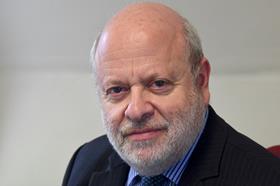The attorney general made it a central part of her Tory Party leadership campaign that the government should leave the European Convention of Human Rights (ECHR), and the jurisdiction of the European Court of Human Rights (ECtHR). She made the same policy issue as the central issue of what she wants from other candidates whom she is prepared to support. She believes that this is the only way that the government can properly handle migration across the Channel in small boats.

Lord Bellamy, the newly appointed parliamentary under secretary for justice, said in the House of Lords shortly afterwards that ‘the government are fully committed to abiding by their obligations under the convention’.
Others have pointed out that the attorney general’s statement, while still in post, implied that the government’s Rwanda relocation scheme is unlawful, since it would require leaving the ECHR to become lawful (according to her), which is contrary to what the government’s lawyers are currently arguing in court.
The ECHR was thrust into the leadership debate at a time when the candidates are vying to outdo each other in Brexit purity – even though the Council of Europe is not part of the EU. In any case, as has been stressed by many commentators in recent days, leaving it is practically impossible for any government.
First, adherence to the ECHR underpins parts of the Trade and Cooperation Agreement (TCA) signed between the UK and the EU, and therefore leaving the ECHR would cause problems under the TCA, particularly in relation to law enforcement cooperation.
Second, and more importantly, there is an express provision in the Good Friday Agreement that those in the north of Ireland have direct access to the courts to rely on their rights under the ECHR.
There are at least two reasons why some politicians keep picking away at the ECHR like a dog unable to let go of a bone. Since I am entering a hotly contested topic, I will use the arguments of eminent others.
The first reason is tied up with the contrast between our present and our past. Lord Neuberger put it this way in the Cambridge Freshfields Annual Law Lecture in 2014, when he was still president of the Supreme Court:
‘The loss of the Empire and the loss of world premier league status has inevitably caused problems to the national psyche, although I think it is a tribute to the UK that those problems have been accommodated without significant unrest or threat of revolution. Nonetheless, a transformation from a global pre-eminent status to just one of many EU or Council members requires an almost super-human attitudinal adjustment. It is true that France and Spain also had empires, but France’s was nothing like that of Britain in size, at least since 1763, and Spain’s largely fell apart over the course of the 19th century.’
The second reason, which may be tied to the first, but is common to many countries whether they had empires or not, is a sense of exceptionalism, in our case around the superpowers of the common law. These words are from Conor Gearty, director of the Institute of Public Affairs and professor of human rights law at LSE, in the 36th Corbishley Lecture.
He first speaks of the Dicey view of the common law - ‘the independent rule of law; the availability of remedies to all, without fear or favour; the common law’s marvellous protection of civil liberties; how great we were, how terrible the continent; and all the rest of it’. But points out some problems with that view, like ‘the partisanship of the common law for property and contract rights over gender and racial equality; an hostility to trade unions and the Labour party so severe that neither could have survived without legislation directly overturning judicial malevolence’.
He then speaks of a collapse after a series of judicial mis-steps in the 1980s and 1990s, particularly following the ‘Spycatcher’ case, where serious allegations of criminality were made against the security services by Peter Wright. This came together with ‘(t)he determined commitment of a succession of senior judges to keep Irish prisoners in jail for serious terrorist offences long after it was obvious to all that the men (and in some cases children) involved had been victims of serious miscarriages of justice’.
These arguments about the impact of empire on our attitude to the rest of the world, and about the exceptionalism of the common law, go to the heart of our identity, and stir strong emotions. But I believe they need to be debated if we are to have a serious discussion about our continuing membership of the ECHR.
If we don’t, the legal arguments (TCA, Good Friday Agreement) will fail to persuade, and we will continue to go round and round.
Jonathan Goldsmith is Law Society Council member for EU & international, chair of the Law Society’s Policy & Regulatory Affairs Committee and a member of its board. All views expressed are personal and are not made in his capacity as a Law Society Council member, nor on behalf of the Law Society
This article is now closed for comment.































9 Readers' comments